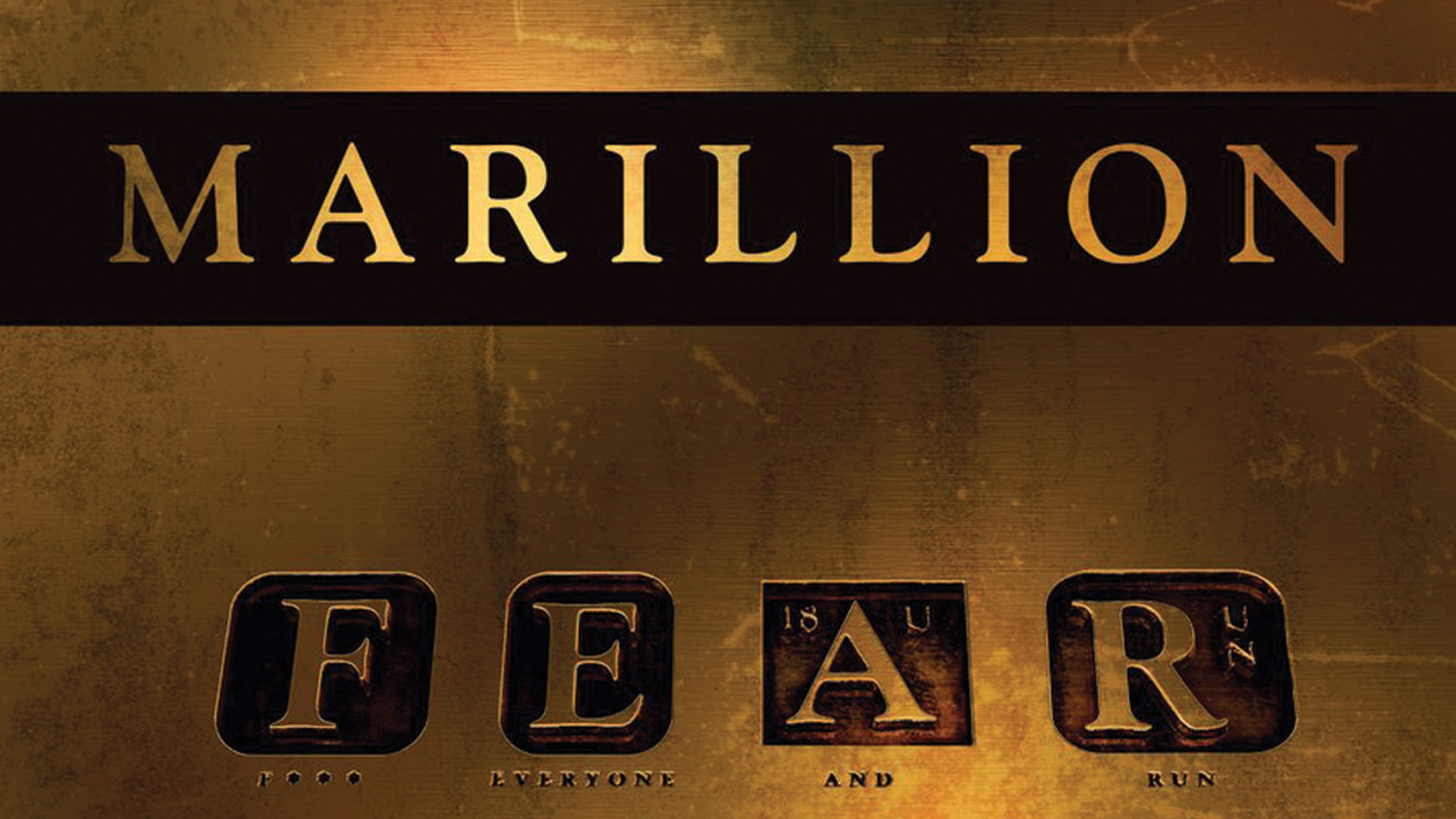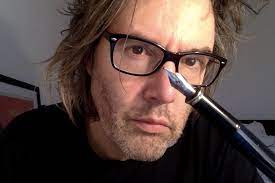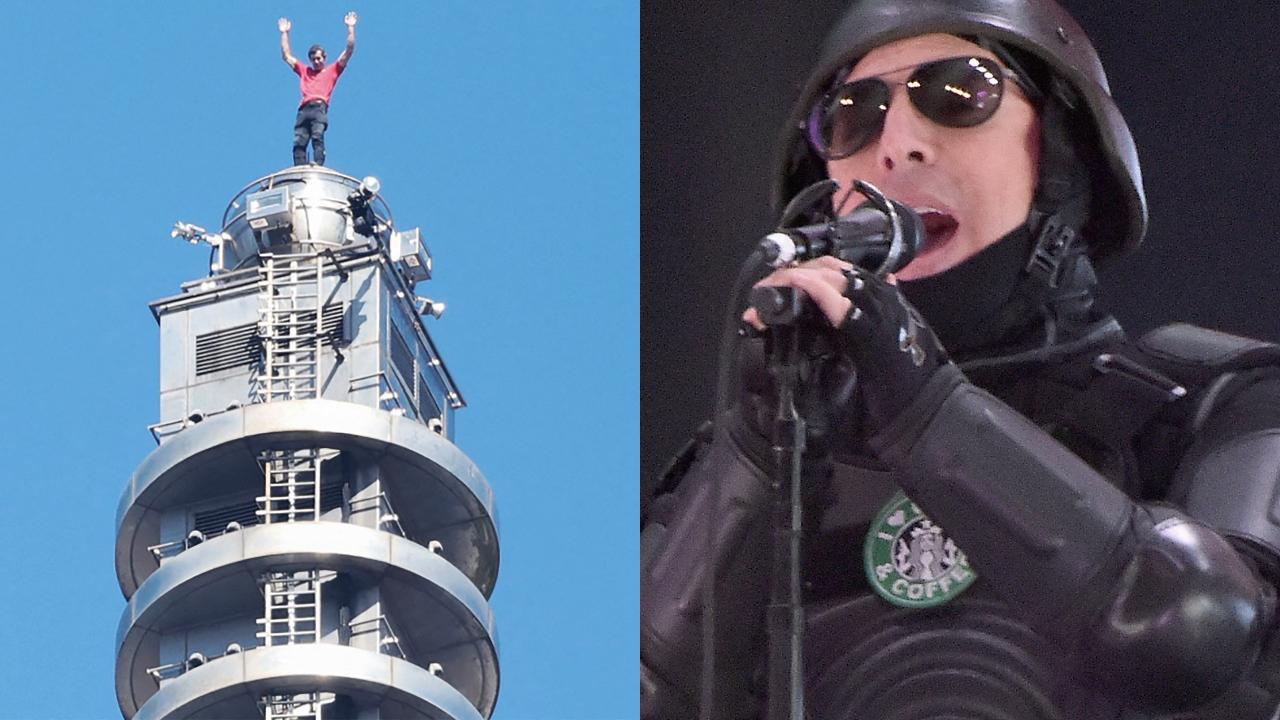You can trust Louder
Picture this: the elegant arches of The Underglobe, set on the banks of the river Thames. An oak tree growing up from the ground, up and into, and seemingly out of, the roof. In the background, there’s the gentle hubbub of the 2016 Prog Awards, which is just thrumming into life when Prog pigeonholes a nonplussed Steve Rothery near the bar. Peter Hammill glances curiously over, Steve Hackett drifts past, a glass of red wine in hand. We’d waited patiently for four years, and now, Prog wants to know where FEAR features in the grand scale of all things Marillion.
“It’s right up there for me,” says Rothery confidently, without skipping a beat. “As good as Sounds That Can’t Be Made, Afraid Of Sunlight, Marbles.”
Which is a bold statement, especially when you consider it comes from a man who tends to err towards understatement. Stranger still to mull the matter over in a gilded venue that brings new meaning to the term ‘salubrious’, given that FEAR is all about things falling apart, watching the world crumble before our very eyes.
Brimming with resentment but with a dark, intractable beauty.
We should have seen this coming. To paraphrase Spinal Tap, when you’ve loved and lost like Steve Hogarth, heartache is going to inform a lot of the work you do. That said, it was the turbulent and ragged Gaza that ushered Sounds That Can’t Be Made into life. Troubling and ugly, it was Marillion and their singer at full bore, before they broke some more hearts with songs such as the title track and the magnificent Invisible Ink.
By his own admission, H is good at being bad at relationships, and he’s even better at detailing the minutiae of their breakdown and the messy aftermath. However, stepping back and looking at the bigger picture, one which is darkening with each day, has plucked the singer from his relative comfort zone of infidelity and lust and placed him in a world of foreboding, storm clouds pressing down on the horizon.
There’s a Bill Hicks gag that ruminates on the apocalyptic nature of our world as seen through CNN’s spectrum, and then you glance out of the window and it’s completely still, sunlight bouncing off the windowpane. FEAR travels over similar ground: we’re the doomed and the dying, staring down into the abyss, but distilled down to the everyday, the corruptive nature of power and money, the migrant crisis, identity, the self.
Sign up below to get the latest from Prog, plus exclusive special offers, direct to your inbox!
Hogarth’s no stranger to exposing his foibles and failings for the music he makes – try listening to some of the Radiation album without squirming. There are moments on that record when it feels like you’ve stumbled on an old diary filled with self‑loathing. Some shame’s apparent here too: his shame at being an Englishman after the Iraq war, the way we as a people turn our heads at the plight of the Syrian refugees, the ever-expanding gap between rich and poor. FEAR is an album brimming with resentment, but unlike the shuddering Gaza, there’s a darker and intractable beauty here. The horrors are sublime – you’re cut, but you don’t even know you’re bleeding.
- Marillion feel FEAR could be landmark album
- The Marillion Quiz
- Marillion: a track by track guide to new album F.E.A.R
- "You're All F**ked!" The story behind Marillion's 18th album F.E.A.R.
That, of course, is where the rest of Marillion step in. Providing the infinite layering of sounds, the dense flourishes of colour, the lilting and extraordinary musical passages that carry Hogarth’s blunt message.
The magnificent and undulating White Paper is as good as anything the band have ever recorded. The furious (it really is) five-part El Dorado suite is a clever mesh of ire and understatement, soaring ever higher, borne on bloody-minded regret and dashed hopes. Similarly, the extended New Kings passage of songs takes the banking scandal as its starting point, but then considers ourselves, the fragility of existence, the burden of just being. The music is at turns as exacting and inventive as the ever-evolving subject matter. It’s quite the trick.
Like children, it’s wrong to have favourites, but the astounding The Leavers (iv) The Jumble Of Days – the album hinges almost entirely on a number of interrelated suites – hangs in the air like an unresolved puzzle on the peripheries of your consciousness long after the album has done.
Like the rest of FEAR, it’s a brief moment of light in a world where we’re all just scrabbling around in the dark.
Interview: Marillion's Steve Hogarth on being punk and replacing Fish
The rise and rise of Marillion – the band that refuses to die
My Prog: A Glimpse Into The Life Of Marillion's Steve Rothery
Philip Wilding is a novelist, journalist, scriptwriter, biographer and radio producer. As a young journalist he criss-crossed most of the United States with bands like Motley Crue, Kiss and Poison (think the Almost Famous movie but with more hairspray). More latterly, he’s sat down to chat with bands like the slightly more erudite Manic Street Preachers, Afghan Whigs, Rush and Marillion.


